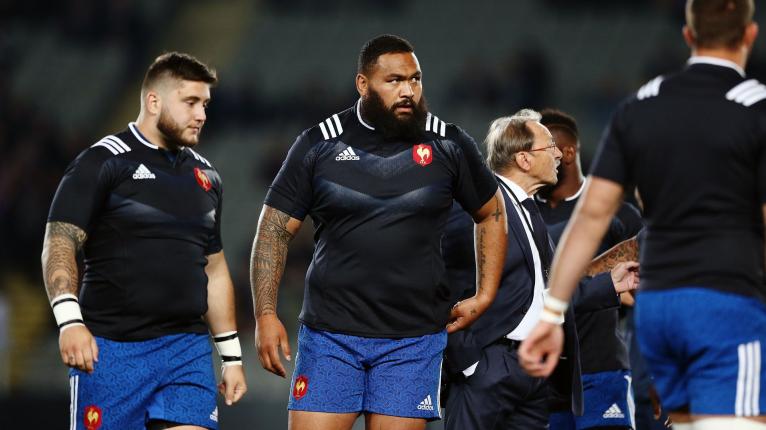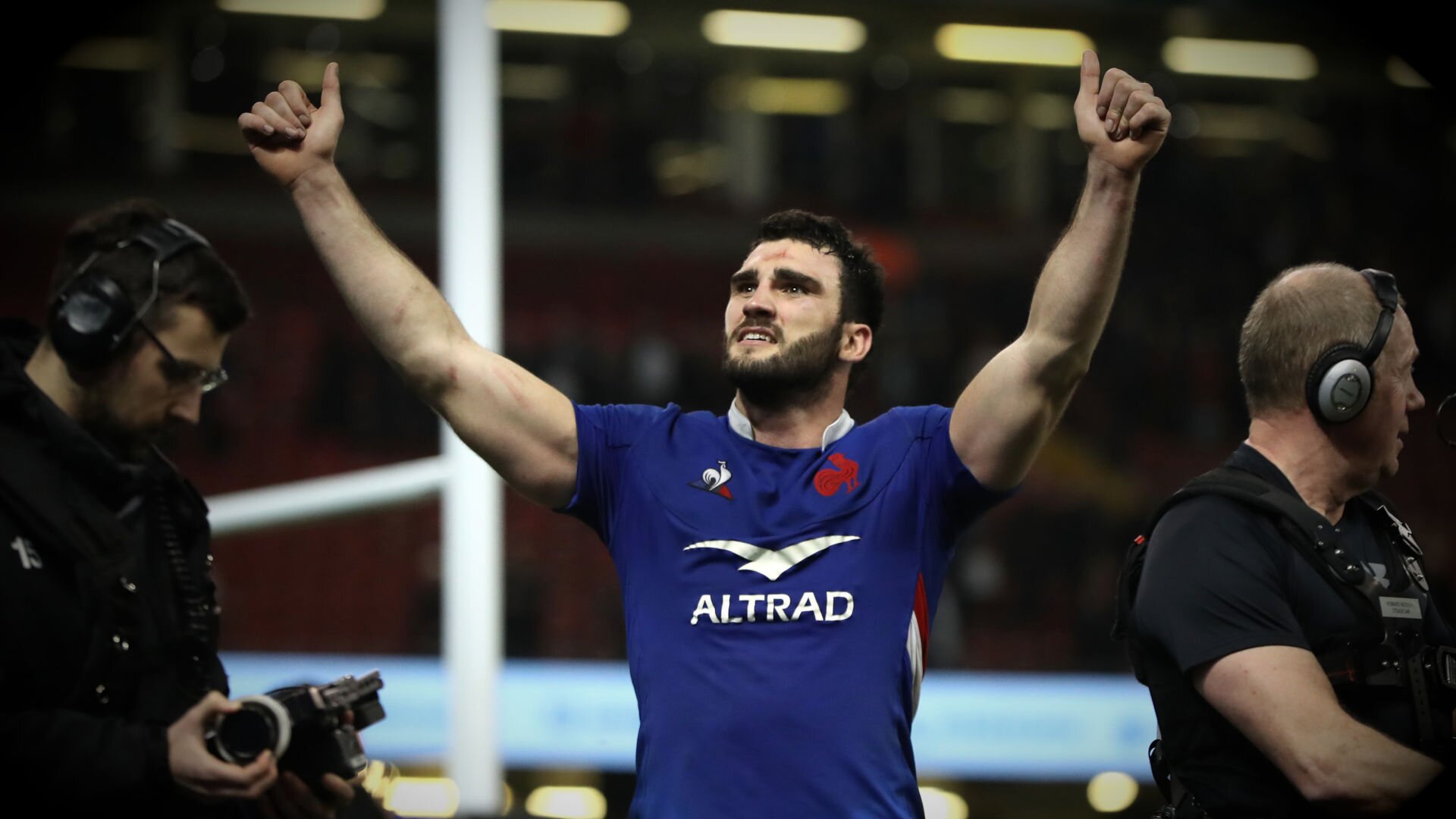Athleticism has finally trumped weight for France

Just over a year ago France fielded the heaviest pack ever seen in international rugby history.
The then Jacques Brunel coached team that faced Wales at the Stade de France tipped the scales at a staggering 962kg – an average of 120.3kg a man. A solid 7kg a man heavier than an average Test pack.
It was the culmination of a decade of increasingly heavy athlete selection for the French national team, a strategy that aped the Top 14’s obsessional, size at all costs approach to the game. It’s been the fallback position for a league that former Clermont coach Joe Schmidt once described as a ‘man-up-a-thon’.
Selectors had better buy in bulk or go home.
Not that its efficacy was ever proven. While Racing 92 and La Rochelle – albeit to a lesser extent – have had success with giant forward packs, if anything the opposite was true for the many sides whose big bodies were falling by the wayside.
Toulouse fielded a one-tonne plus in 2016/17. Was it a coincidence that the aristocrats of French rugby finished an unheard of 12th that year? The same year a super-sized Bayonne were relegated. Perpignan in 2013/14 had the heaviest pack in all of France that season and were relegated and wouldn’t be seen in the French top-flight again until 2018.
Continue reading below…
WATCH: John Kirwan and Kane Hames on The Breakdown debate the ref’s decision of Paul Willemse slap down against Wales in Six Nations.
In stark contrast, the teams that have dominated the same league over the last decade: Toulon, Clermont, Castres and the Toulouse side of 2011-13, did so – contrary to popular belief – with decidedly middle-weight forwards.
Could it be that the Fabien Galthie’s 2020 French side has finally learned that size doesn’t win in the Top 14 and neither does it win Test matches?
It’s obvious that height and athleticism are more important for Galthie. There’s one only survivor from Brunel’s giant pack of 2019 Six Nations; a much-slimmed down 6’7, 129kg Paul Willemse. Having shed 6kg since over the summer, the big Montpellier lock is playing the rugby of his life.

That’s not to say his current crop are willowy. Far from it. The average weight of starting eight that beat Wales in Cardiff was 918kg, or 114.75kg a man. They are also tall – with an average height of 6’3.5 inches (or 191.25cm).
There is a greater trend in test rugby to selecting for height at blindsides or shifting second rows into the backrow. England’s converted lock, 6’7 Courtney Lawes; the Springboks 6’6 Pieter Steph Du Toit and New Zealand’s 6’5 Liam Squire and 6’5 Jerome Kaino before that are examples of that.
Allied to that, the pretty mediocre results of Michael Cheika’s ‘Pooper’ experiment for the Wallabies suggests starting two (relatively) short opensides capable of competing for the ball on the deck wasn’t the panacea for fast-ball and turnovers on opposition ball that many thought it might be.
???#PoweredByAWS #GuinnessSixNations pic.twitter.com/sHROwAxXkd
— Guinness Men's Six Nations (@SixNationsRugby) February 29, 2020
Height at six is an easy way to add a few inches for a third lineout option, while simultaneously providing heft for close-quarter ball-carries.
What strikes you about this French forward pack however is their abundant athleticism. They seem equally happy in the open field and with space in from to them as do they do when called upon to run over the top of the opposition.
That athleticism is reflected in the stats too. Six foot seven flanker Ollivon leads the try-scoring charts with three tries. He is also joint first with Ntamack for try assists with three. His height has also helped him to become the tournament’s leading lineout taker with 20 – 5 more than Ireland’s James Ryan in 2nd.
No.8 Gregory Alldritt leads the forwards in the competition for metres made with 271. It’s the fourth-highest of any player and seven metres more than Scottish fullback Stuart Hogg in 5th.
Galthie’s investment in youth made the headlines in the lead up to the Six Nations. But what his selections seem to indicate is that it is no longer enough to be a big body. He wants athletes into the bargain.

































